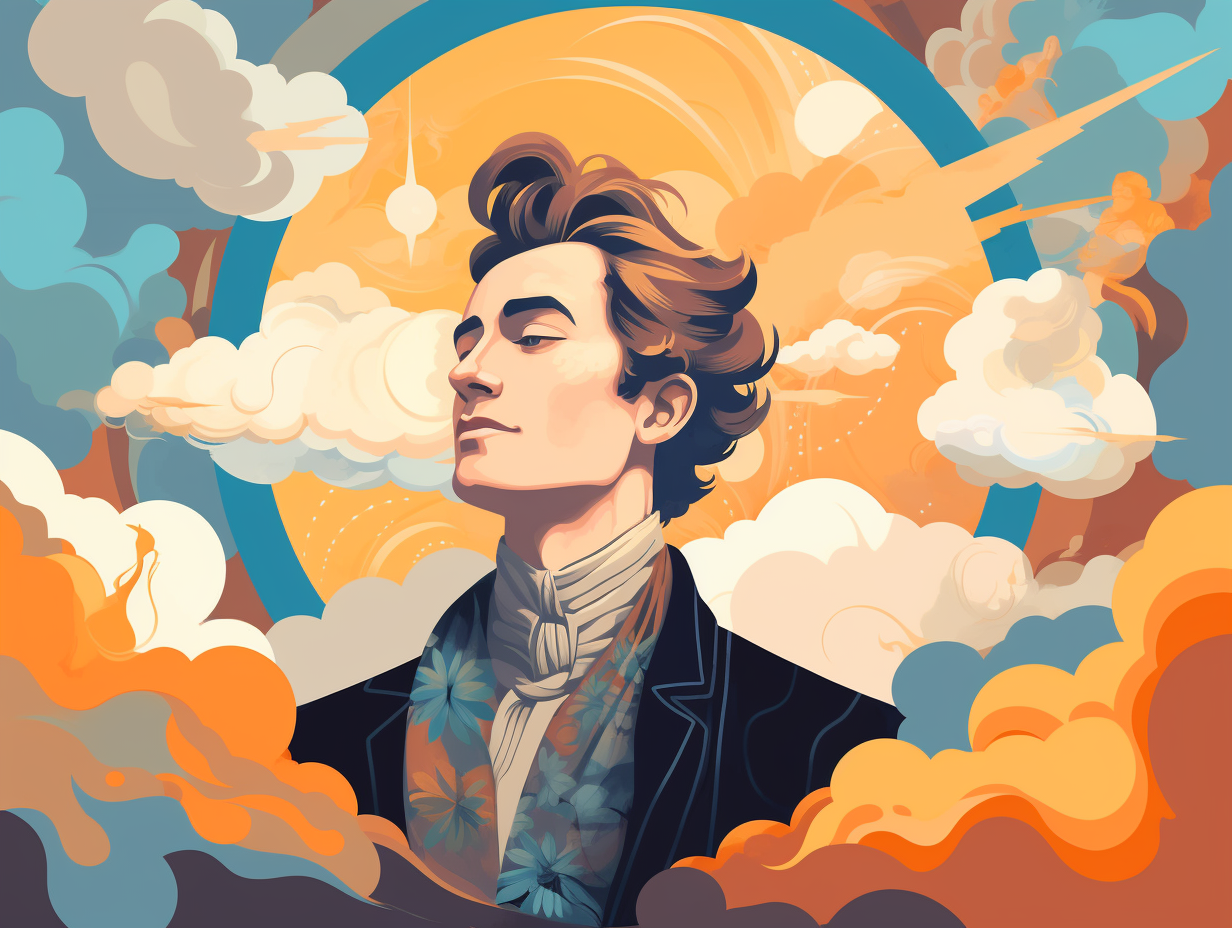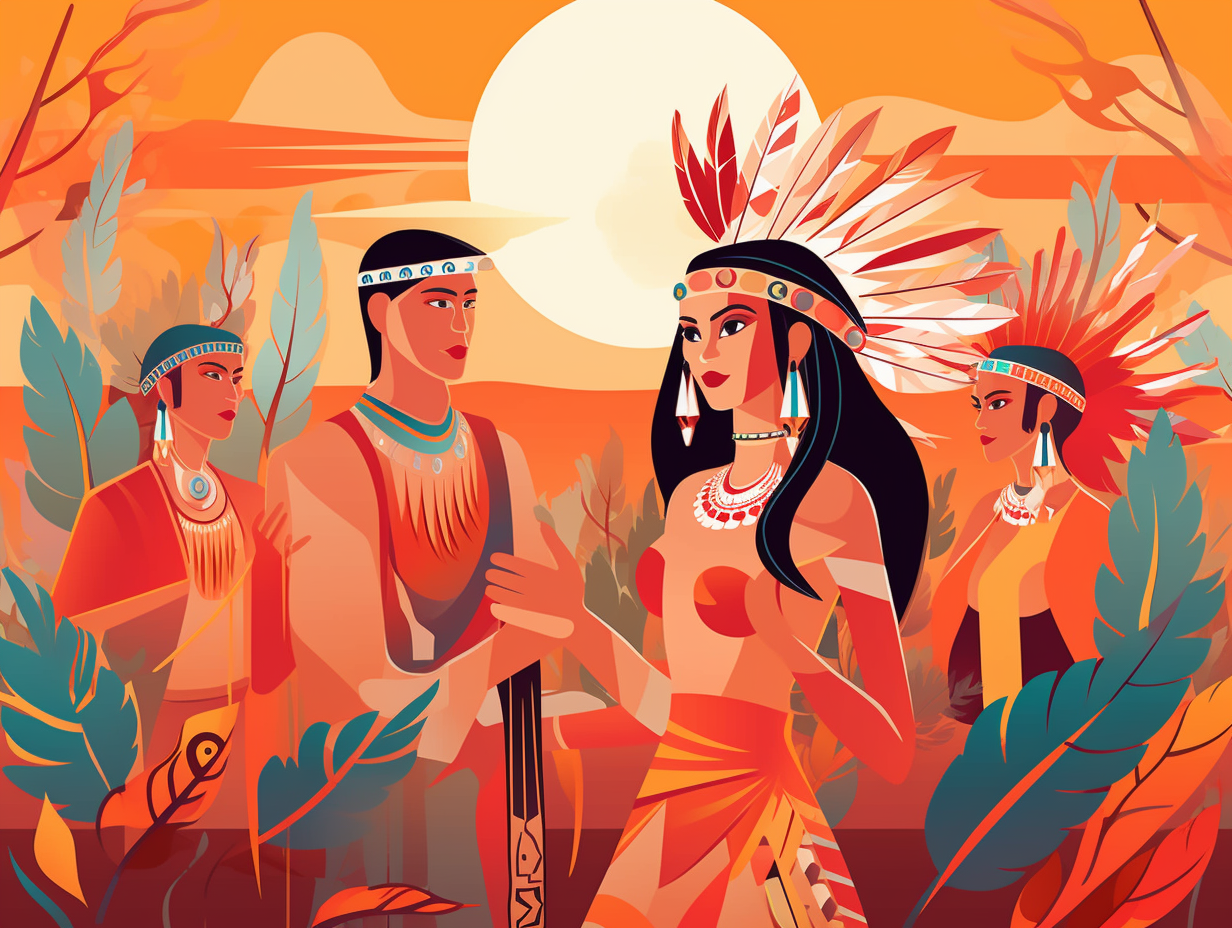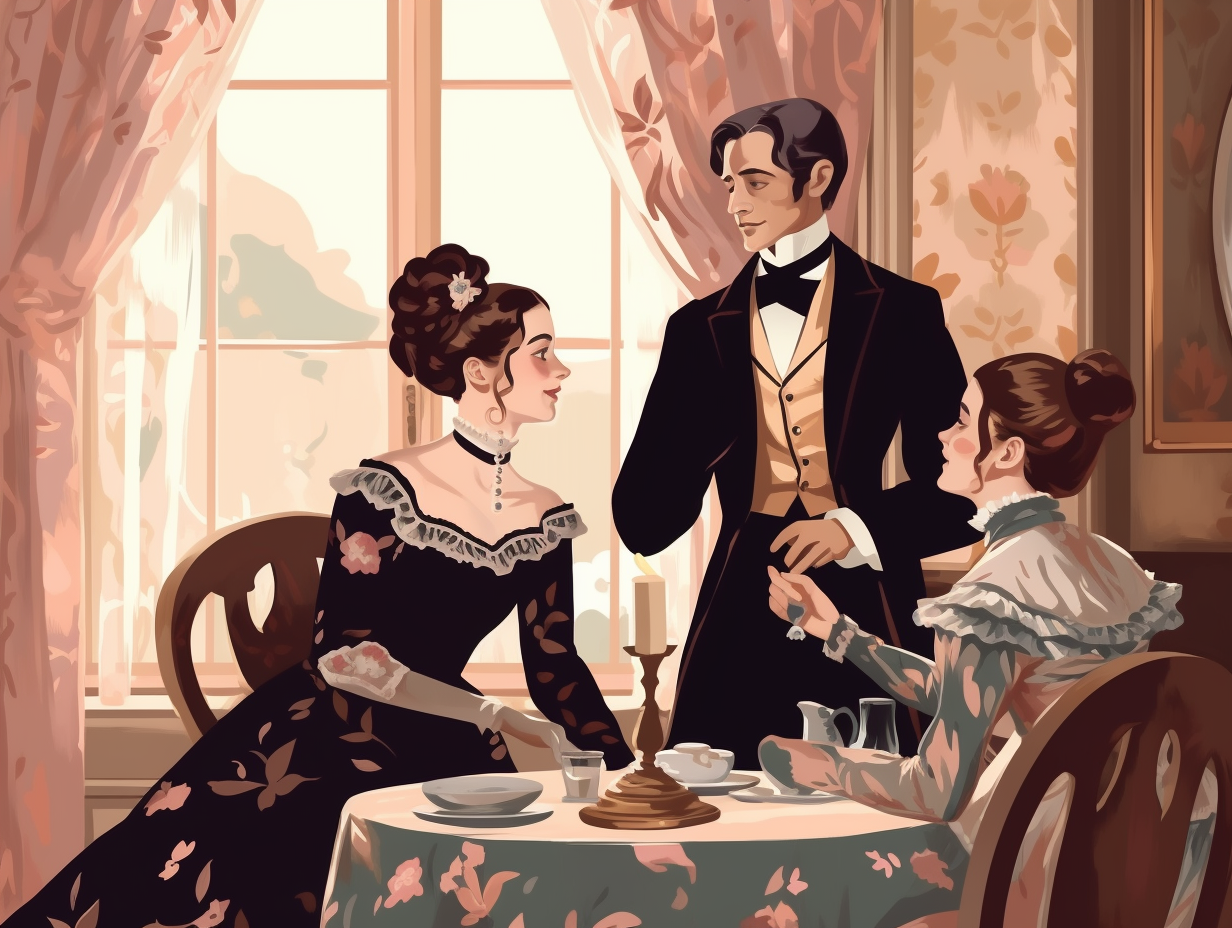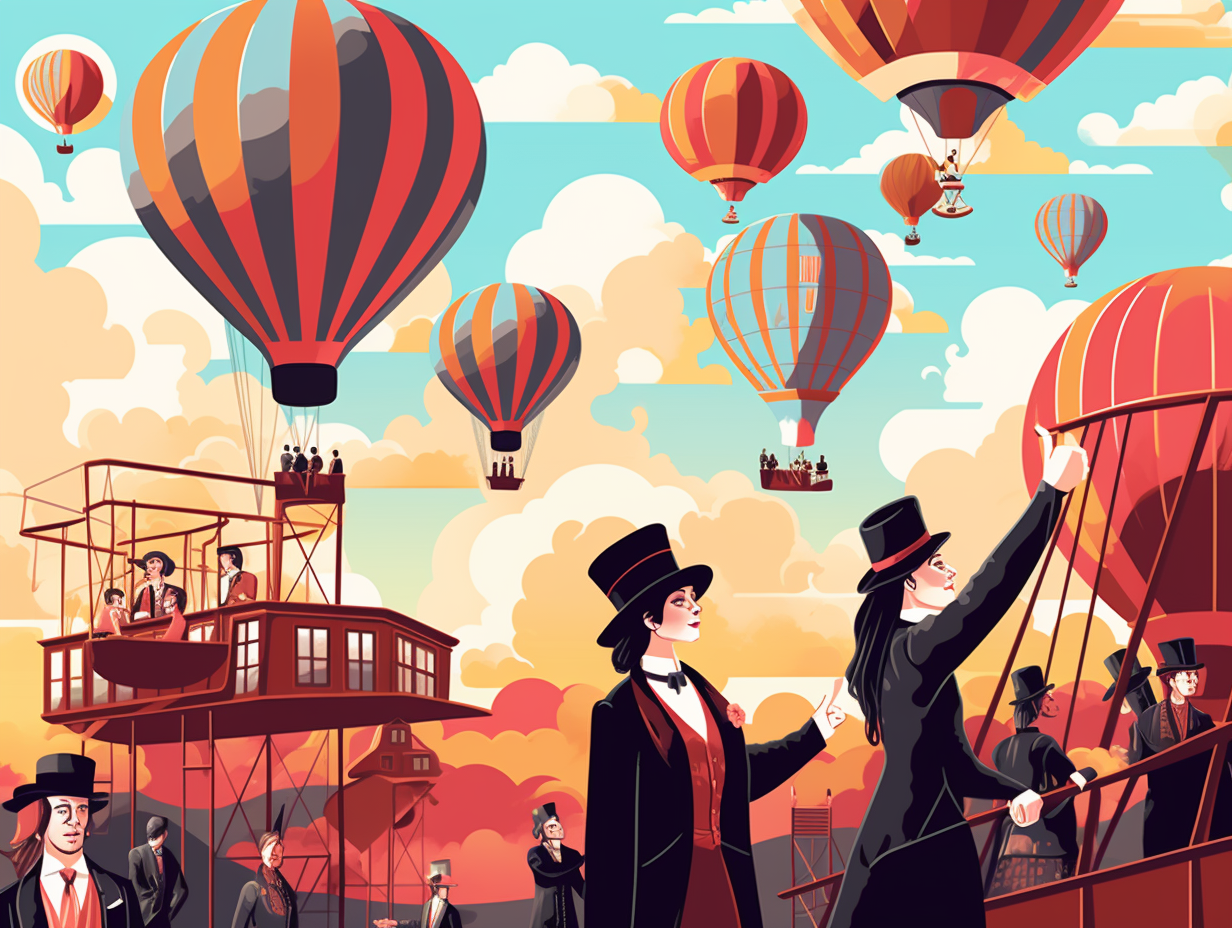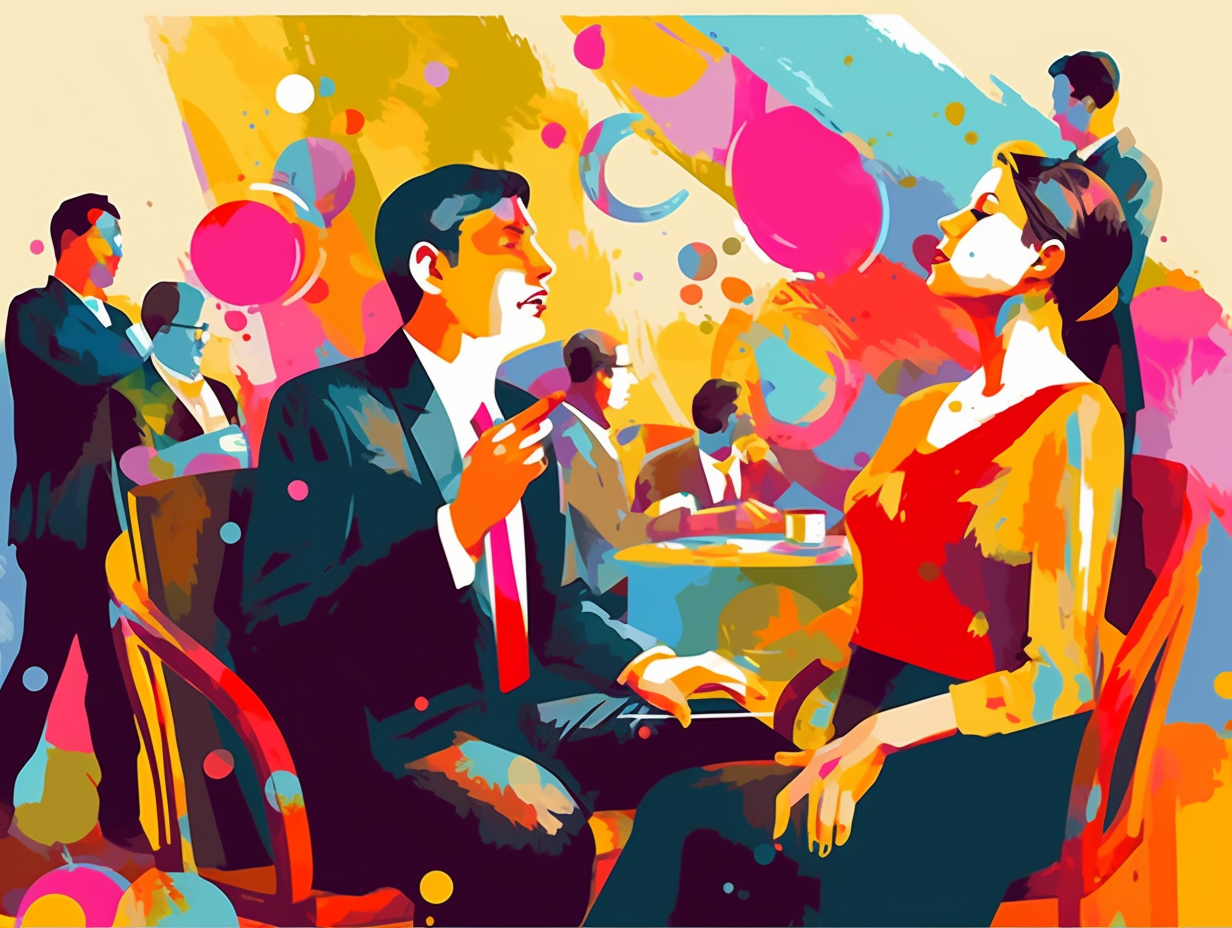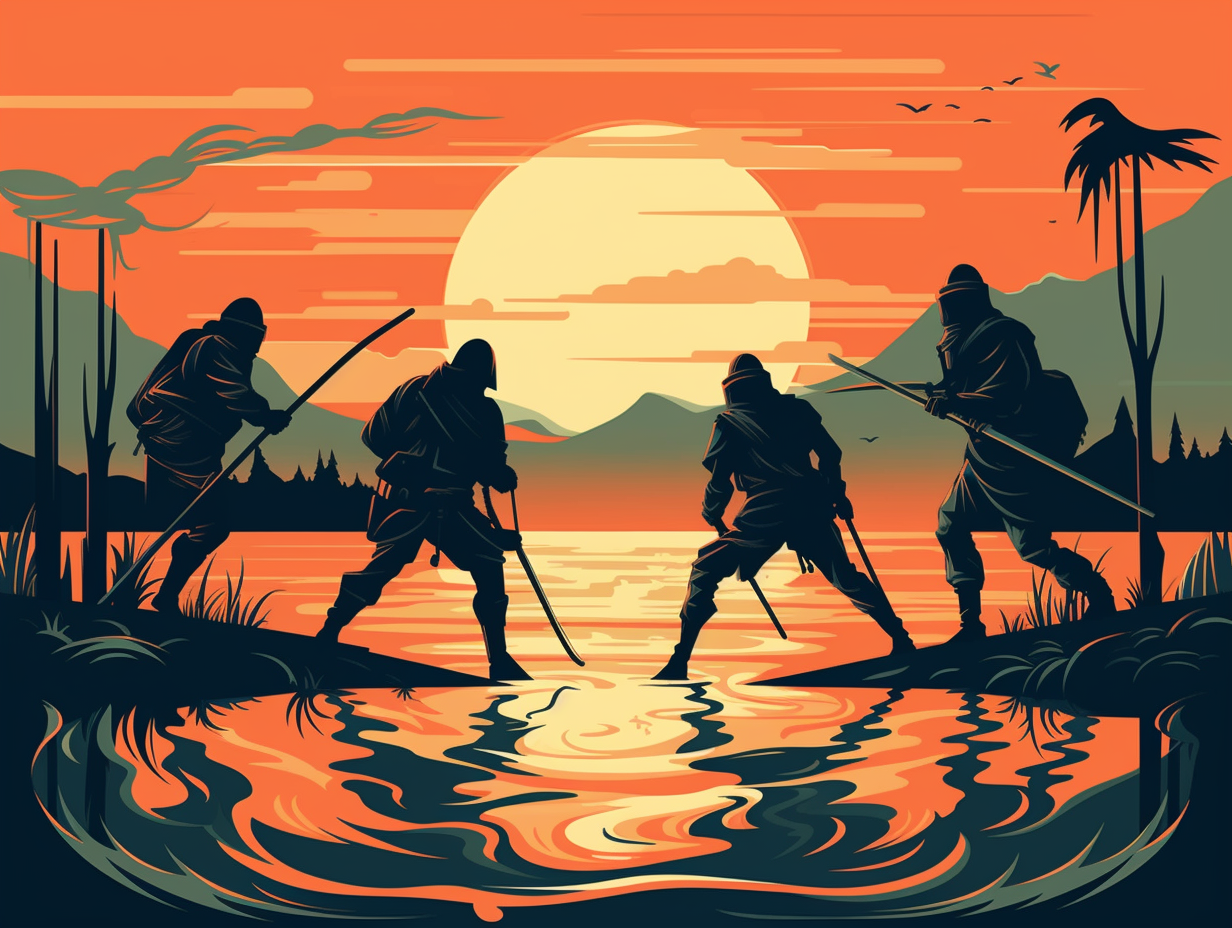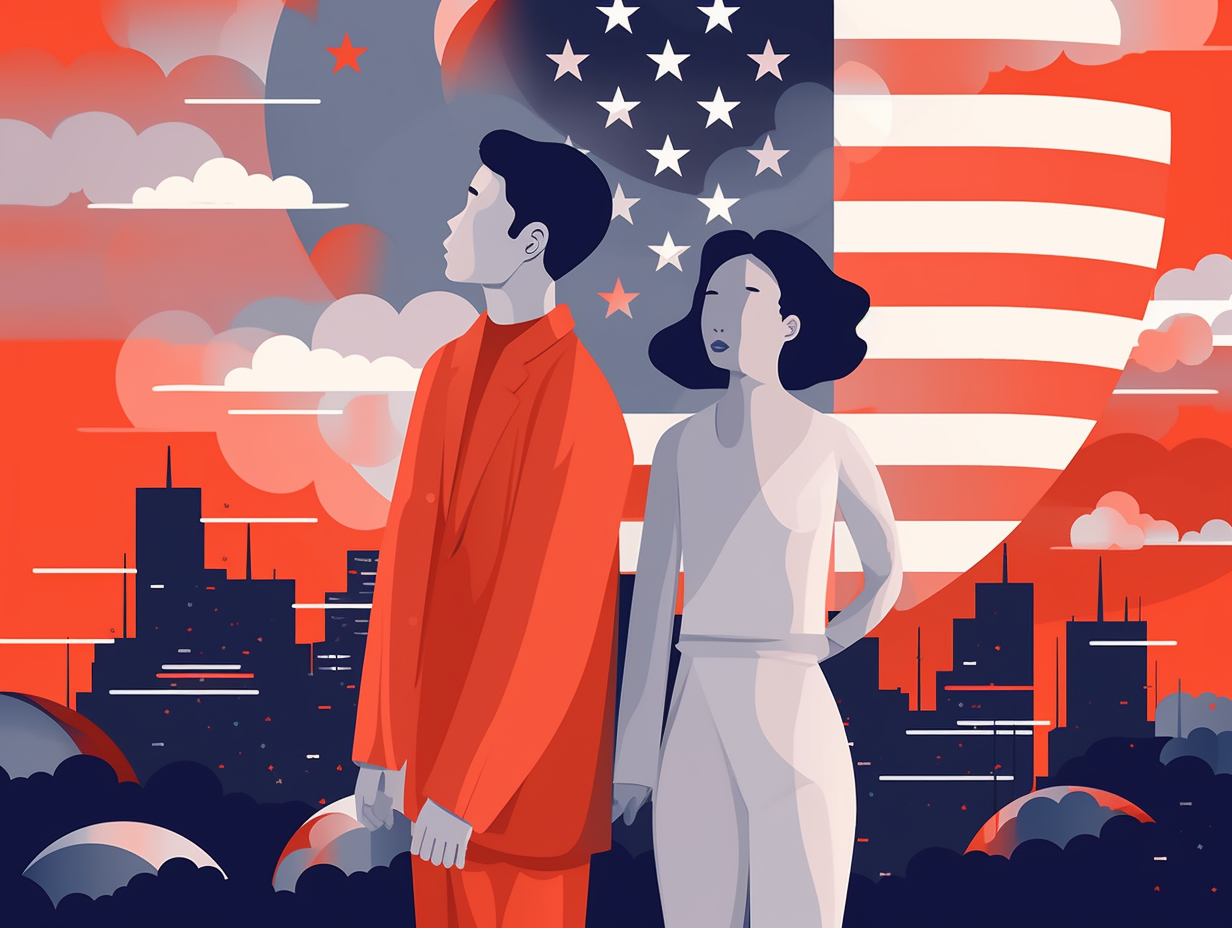Unveiling Confucian Secrets: Top 13 Fun Facts About Confucianism That Will Astound You!
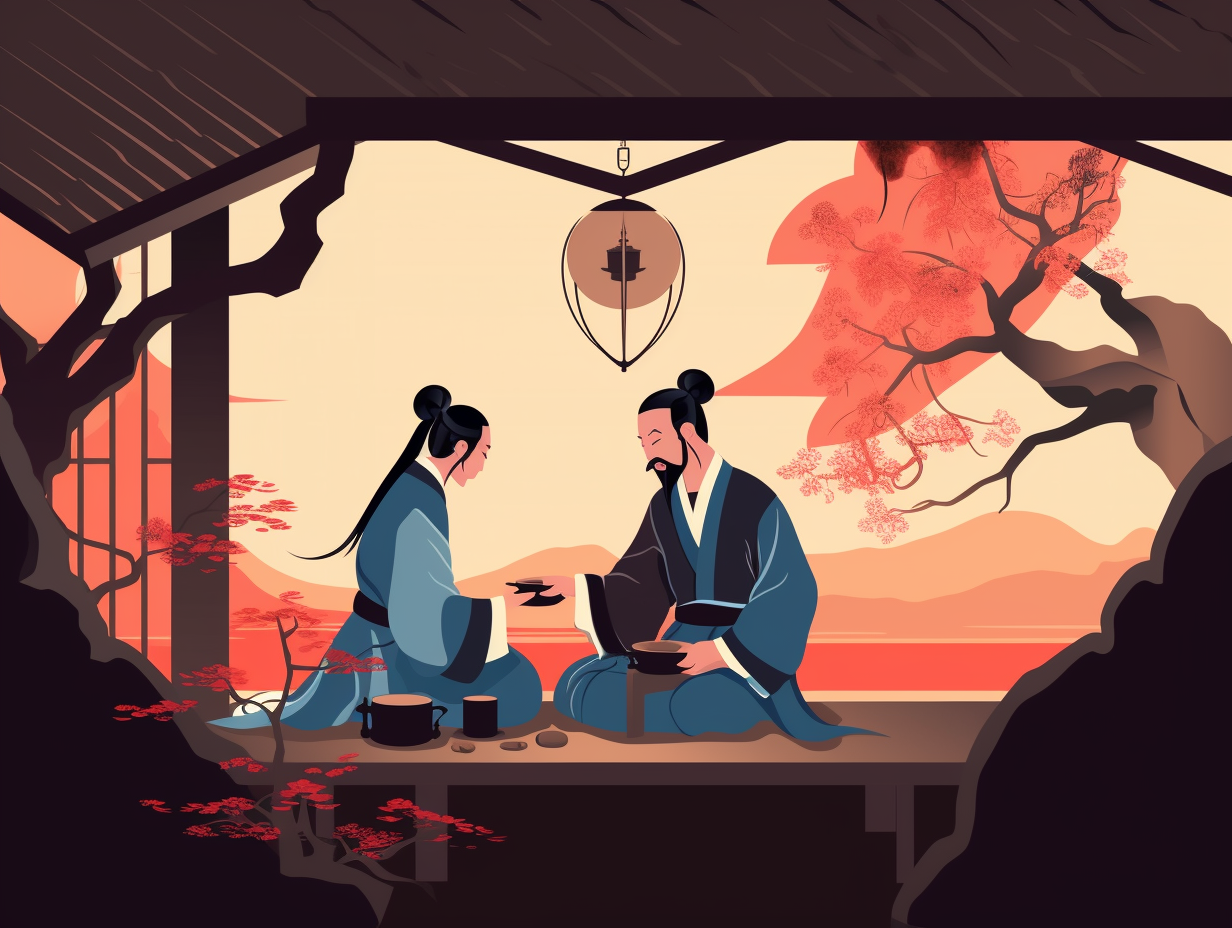
1. Life Coach Confucius
Before Confucius became a household name in philosophy, he had a brief stint as an underrated life coach: As it turns out, he either authored or edited many of the Chinese classic texts, including all of the Five Classics. Just keep in mind that modern scholars are hesitant to attribute specific ideas to him because some of the texts and philosophy he shared were older than your grandpa's dentures. But fear not, Confucius fans - his teachings and principles live on in the Analects, a compilation put together long after he stopped doling out wisdom (and life hacks) in person.
Source => en.wikipedia.org
2. Family-Loving Philosophy
Did Confucius ever say, "You must be the piety you wish to see in the world"? Probably not, but he sure did preach a whole lot of family-loving: Confucianism, while focusing on moral and ethical beliefs, edges into the realms of religion with the worship of Confucius himself as a spirit in temples and the staunch emphasis on ancestor worship, proving not all religions need a deity to make a family out of believers.
Source => nationalgeographic.org

Did you know that ancient China's Legalists had a "survival of the strictest" approach to maintain order in society? Discover their fascinating methods and their influence on agriculture and military strength!
=> Fun Facts about Legalism
3. Wisdom Beacon
When Confucius wasn't busy inventing fortune cookies or giving advice to Keanu Reeves, he was a beacon of wisdom for the ages: Confucius emphasized filial piety, nurturing virtuous friendships, and respectful uneasiness towards rulers, as showcased in his timeless Analects – a collection of dialogues and teachings that continue to shape Chinese philosophy and government to this very day.
Source => encyclopedia.com
4. Party Animal
Confucius makes this list of famous party animals, hosting the hottest shindigs of ancient China! He had a penchant for spicing up soirees with some good ol' rituals: Alas, these rituals were actually prim and proper, designed to redefine the conduct of rulers and families, helping to maintain moral standards and shape traditional Chinese social life.
Source => asianbrushpainter.com
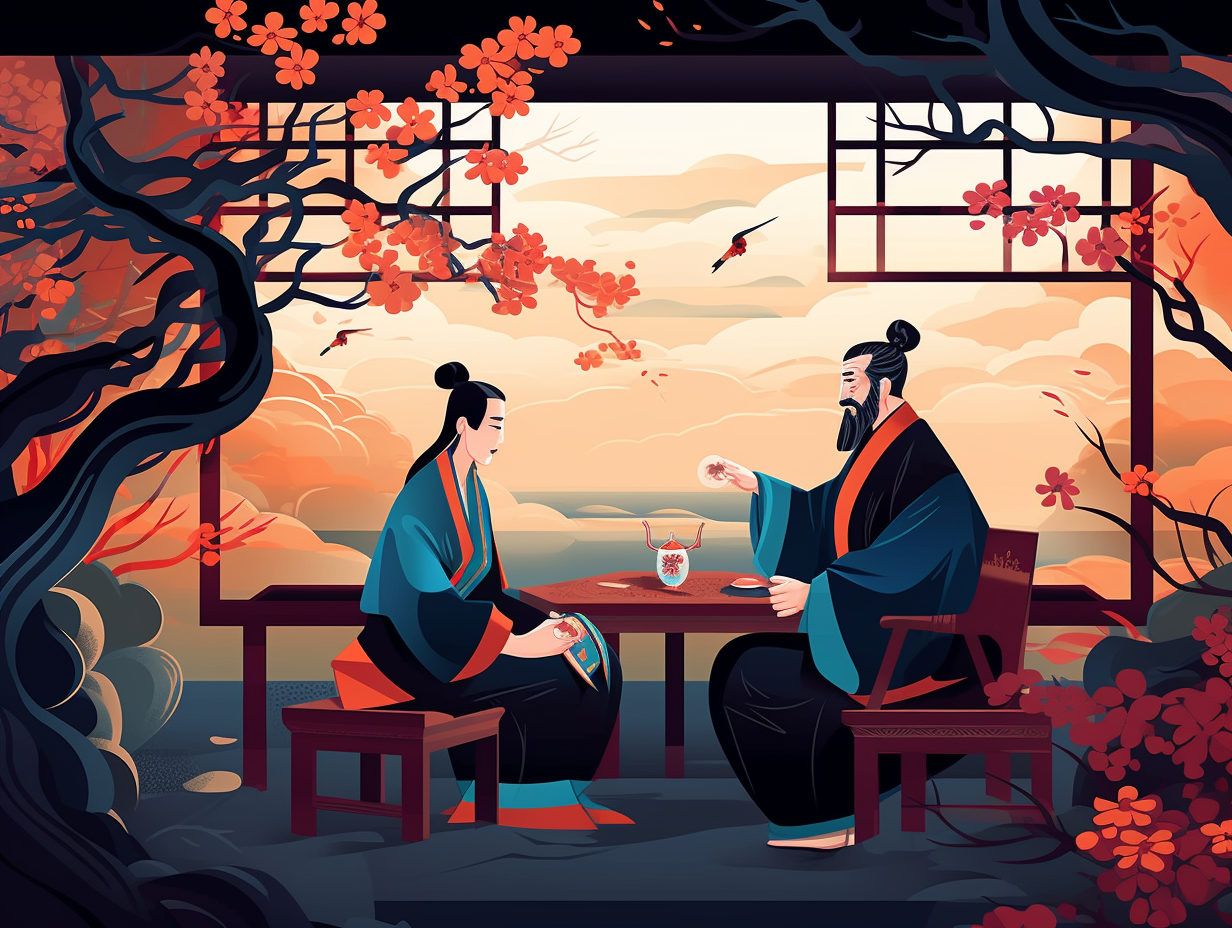
5. Jack of All Trades
From a side gig as Hawkeye's ancient ancestor to an early proponent of "Jack of all trades, master of none": Confucius juggled roles as a philosopher and politician while showcasing his expertise in horse riding, archery, hunting, and navigating diverse environments during the Spring and Autumn period in China.
Source => en.wikipedia.org
6. Warm-and-Fuzzy Music
Ever wondered why the music at a Confucianist party never tops the charts but leaves you feeling all warm and fuzzy inside? Here's the lowdown: Confucianism prioritizes the educational and moral aspect of music over its catchiness, leading to Chinese art songs featuring modern and classical poetry in their lyrics, emphasizing benevolence over booty-shaking beats.
Source => digital.lib.washington.edu
7. Beardless Trendsetter
Confucius: the original trendsetter who proved you could have deep thoughts without growing an epic beard to stroke: This wise sage of ancient China founded Confucianism during the Hundred Schools of Thought era, transforming the Chinese society like a DJ remixing the Zhou Dynasty's greatest hits, and making his philosophy the ultimate chart-topper throughout most of the nation's history.
Source => crf-usa.org
8. Corporate Virtues Legacy
Did Confucius moonlight as an HR consultant for Fortune 500 companies? Well, not quite, but his teachings definitely left a corporate legacy: Confucianism promotes the idea of "Junzi," individuals who embody benevolence, righteousness, propriety, wisdom, and integrity—virtues that are now reflected in modern corporations' environmental, social, and governance (ESG) policies.
Source => ncbi.nlm.nih.gov
9. MasterChef Confucius
Who knew Confucius was the original MasterChef?: While he’s often seen as a stickler for rules, Confucius believed that food, friends, and feasting were integral to a fulfilling life. He saw food as one of the three essential ingredients for a thriving state (alongside an army and trust), encouraged moderation in meat consumption, and kept the motto "eat till you're seven-tenths full" for a longer life. So, next time you host a dinner party, channel your inner Confucius for some foodie wisdom and don't forget to give a shoutout to ancient hygiene and sustainable sourcing!
Source => you.stonybrook.edu
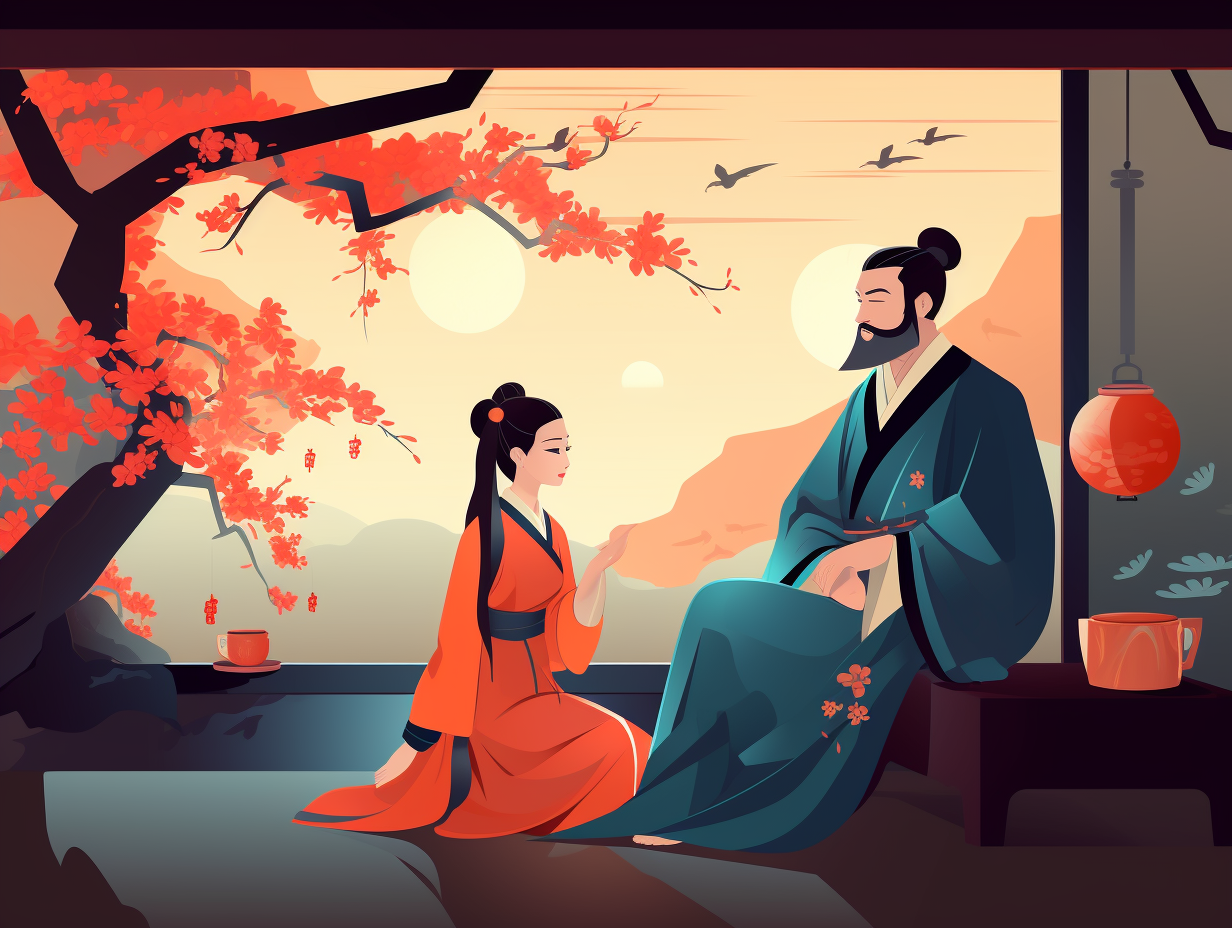
10. Harmonious Relationship Recipe
Ever longed for those sweet, sweet harmonious relationships, like a backing choir for your hectic family life? Looks like Confucius proposed the perfect classic, retro harmony recipe: He taught that by respecting and honoring one's ancestors and elders, individuals could create peace and harmony within families and society, making filial piety an essential ingredient in the tasty dish called Confucianism.
Source => britannica.com
11. Manners Nazi
Think of Confucianism as the "manners nazi" of ancient Asian cultures - leading the way to bowed heads, respecting your elders, and giving you major judgement eyes for that one time you called your boss by his first name: Confucianism's impact traces back to reinforcement of social hierarchy and has evolved to shape modern education systems in Asian countries, with cutthroat competition and a relentless pursuit of knowledge echoing the centuries-old emphasis on schooling as the sole means to ascend in society.
Source => asiaexchange.org
12. Intellectual Road Trip
Poor Confucius couldn't catch a break, as the nobles of the State of Lu treated him like an uninvited guest on a reality TV show: cast aside, criticized, and ultimately banished. Our wise philosopher packed his bags and took to the road for over two decades, preaching his teachings to the countryside folks – quite the intellectual road trip for the ages!
Source => thoughtco.com
13. Profound Spiritual Hangover
When Confucius walked into a bar and met Lao-tzu, he found something stronger than his usually preferred moral cocktail: Overwhelmed by Lao-tzu's zen coolness, Confucius' orderly world was shaken like a martini, stirred by the wisdom of simplicity. In that moment of profound spiritual hangover, he uttered: "I have set eyes on a Dragon." : This unconventional encounter refers to the story of Confucius seeking advice on attaining Tao from Lao-tzu, who discouraged him from using rules and regulations as a means to Enlightenment, instead suggesting a life of simplicity and the Uncarved Block. This meeting left such a great impact on Confucius that he couldn't help but express his admiration for Lao-tzu's mystical persona to his disciples.
Source => lithub.com
Related Fun Facts


